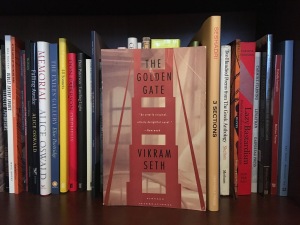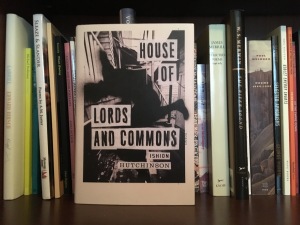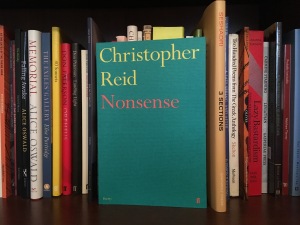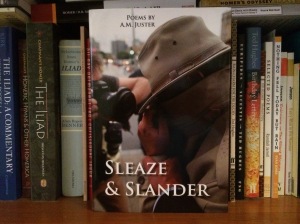Lost in the Space Between Canada and the United States
Stephanie Burt, Advice from the Lights (2017)
This is really a marvellous collection, ranging from Callimachus to growing up in the 80s, and well worth reading for those who haven’t done so already. I was particularly struck by Burt’s talent for rhymes that are so subtle you almost don’t notice they’re there. For our purposes here, though, we will look at the one poem that mentions Canada:
Indian Stream Republic
No one should be this alone —
none of the pines
in their prepotent verticals,none of the unseen
hunters or blundering moose
who might stop by the empty lodge or the lakeas blue as if there had never been people
although there are people: a few
at the general store, and evidence of morein clean vinyl siding, and down the extended street
a ruddy steel pole the height of a child, its plaque
remembering a place called “Libertyat Indian Stream,” 1832-35,
between the disputed boundaries
of Canada and New Hampshire, meantas temporary, almost
content to remain its own.
Each household, their constitution said, could possessone cow, one hog, one gun,
books, bedding and hay, seven sheep and their wool, secure
from attachment for debt no matter the cause.The state militia came to set them right.
The legerdemain of the noon sun through needles and leaves,
revealing almost nothing, falls acrossthin shadows, thin trace of American wheels and hands
for such high soil and such short reward:
“the people … do hereby mutually agreeto form themselves into a body politic
by the name of Indian Stream, and in that capacity
to exercise all the powers of a sovereigntill such time as we can ascertain to what
government we properly belong.” (74-5)
[Note: passages in quotation marks appear in italics in the original.]
The historical background to this poem (in brief) is that the Treaty of Paris left a part of the boundary between Quebec and New Hampshire ambiguous. As a result, there was a dispute about whether an area in (what is now) northern New Hampshire was actually part of Canada or of the United States. The people who lived there briefly constituted themselves as an independent nation, called the Republic of Indian Stream, before the dispute was settled and the area became a part of the U.S. (A fuller history, on which my summary is based, is available at the Pittsburg, New Hampshire website.)
There isn’t a lot of actual information about Canada in the poem, but Canada plays an important role as the poem is, in part, about what a 90s university professor might have called “the liminal” — the transitional, indeterminate space between defined things. In describing the Republic of Indian Stream, Burt draws our attention to the fact that borders (such as the one between Canada and the U.S.) are not always as solid as we think they are. Though famously undefended, our border seems solid to us, and this sense is confirmed by the clear mark of delineation on any map, defining everything south of the line as “U.S.” and everything north of the line as “Canada”. Of course if you’ve ever been to the border you know it’s not like that; in places it’s just undifferentiated landscape without much to show where one country ends and the other begins. It’s still possible, in places, to be uncertain which country you are actually in.
The Republic of Indian Stream was born out of that kind of uncertainty about a national border that we tend to think of as if it were a physical thing. Burt’s poem celebrates a community that sprang up and briefly thrived in this undefined region between two established entities and, in doing so, evokes important ideas of flux and permeability.









